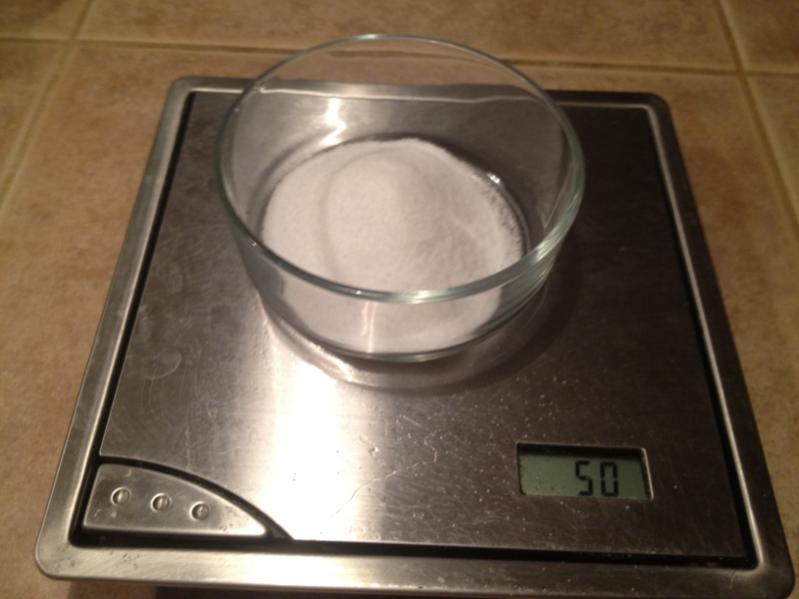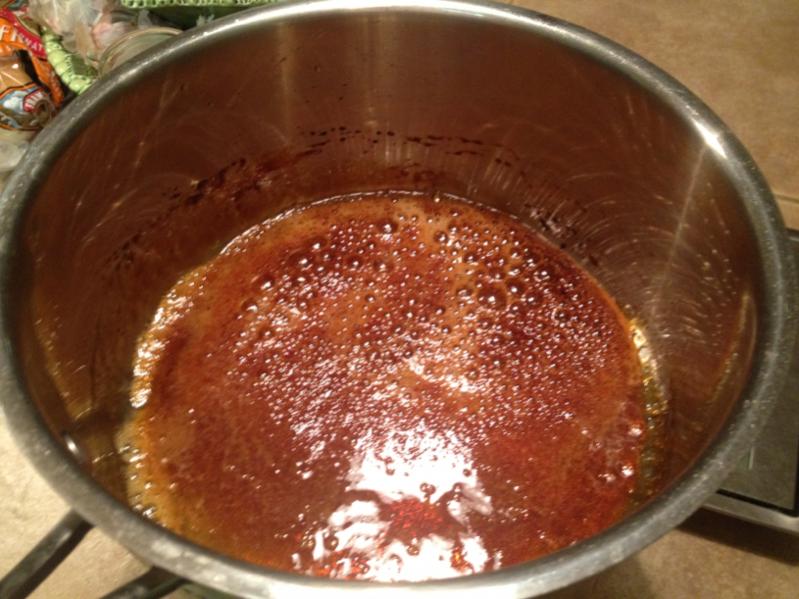bottlebomber said:
If both are weighed accurately, and both have the same volume at 70 degrees, will the hydrometer read the same on both.
Not necessarily, even if it remains all in solution, as the density of the molecules produced can differ. If they're different, you might even try having a third solution, using caramel to the same SG as the table sugar solution. I suspect the difference might be smaller than you're capable of reliably measuring, though.
bottlebomber said:
You suggested, if I'm not wrong, that the caramelized sugar would be highly unfermentable. I think you may be wrong, because a Bochet is probably similar in composition and it is fermentable.
Here's the thing... even I will admit that caramel isn't necessarily "highly unfermentable", for two reasons. The first is that the term itself is subjective... at what point does it go from somewhat unfermentable to "highly" so?
But more importantly, and on a somewhat related note, caramelization is a process that can be done to different degrees, it's not like there's a sharp division between uncaramelized and caramelized sugar. So what I'm saying is that fermentability will be affected by the degree to which you caramelize the sugars. If you only lightly caramelize them, it will be more fermentable than a well-caramelized solution. And in practice, I'd say it's always going to be fermentable, if only partially so.
We know that all these higher order sugars and other crazy molecules are created during the caramelization process, and we know that the yeast we use only has the enzymes to ferment a handful of simpler sugars. I'm not sure where in the science you think there's room for the possibility that it will remain 100% fermentable, because it should be clear that there isn't.
That's not to say that caramelizing lactose is pointless, as it will certainly produce a different product, but the assumption that led you to think it necessary is indeed incorrect.
Feel free to do the experiment anyways, as there's little harm in doing it. Unless you conduct it poorly, that is, so just make sure the sugar is VERY well-caramelized so that it isn't merely slightly unfermentable with the difference in FG falling within the margin of error. Use a specialized FG hydrometer if you can to reduce this margin of error. But really, if the initially brown solution doesn't turn clear, there isn't even really any need to take the measurement, is there?
Anyways, I don't mean to sound like a pompous ******* or dismissive of your idea "just because", and I hope you understand that. But the science behind all this is well understood and there's really no scientific basis whatsoever for your hypothesis.











































![Craft A Brew - Safale BE-256 Yeast - Fermentis - Belgian Ale Dry Yeast - For Belgian & Strong Ales - Ingredients for Home Brewing - Beer Making Supplies - [3 Pack]](https://m.media-amazon.com/images/I/51bcKEwQmWL._SL500_.jpg)
















